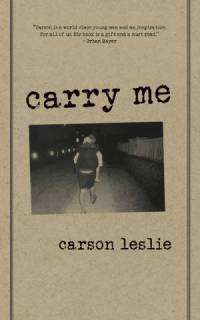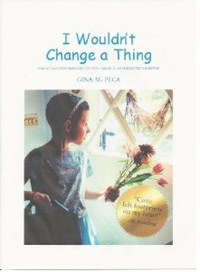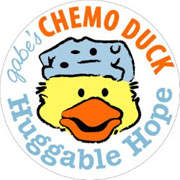 I just can’t believe what I read the other day and what I am about to write about right now. This about trust—trust between patients and their healthcare providers. This is about trust that is being broken.
I just can’t believe what I read the other day and what I am about to write about right now. This about trust—trust between patients and their healthcare providers. This is about trust that is being broken.
What I read:
The New York Times published an article on January 29, 2016, entitled: Drug Shortages Forcing Hard Decisions on Rationing Treatments. It was actually the subtitle that caught my attention: Such shortages are the new normal in American medicine. But the rationing that results has been largely hidden from patients and the public.
The article was not specific to childhood cancer or cancer in general, but many of the doctors quoted were oncologists. They talked about different approaches to rationing drugs, including decisions based on age. I encourage you to read the entire article, if you haven’t already.
What I’m writing about:
I’m going to reserve comment on the drug shortage problem itself, including the causes behind it and any proposed solutions. I am also going to reserve comment on the complex issue of rationing the drugs, other than to say that I recognize that nobody wants to be in this situation and that such decisions must be very difficult. I don’t want to get into any of that right now.
I’m writing about 1 aspect and 1 aspect only: the decision to not tell the patients and families.
Here are some specific highlights for context, taken verbatim from the piece:
CLEVELAND — In the operating room at the Cleveland Clinic, Dr. Brian Fitzsimons has long relied on a decades-old drug to prevent hemorrhages in patients undergoing open-heart surgery. The drug, aminocaproic acid, is widely used, cheap and safe. “It never hurt,” he said. “It only helps.”
Then manufacturing issues caused a national shortage. “We essentially did military-style triage,” said Dr. Fitzsimons, an anesthesiologist, restricting the limited supply to patients at the highest risk of bleeding complications. Those who do not get the once-standard treatment at the clinic, the nation’s largest cardiac center, are not told. “The patient is asleep,” he said. “The family never knows about it.[…]
Studies have associated alternative treatments during drug shortages with higher rates of medication errors, side effects, disease progression and deaths. For example, children with Hodgkin’s lymphoma who received a substitute to the preferred drug had a higher rate of relapse, researchers found, and adults with a genetic disorder called Fabry disease had decreased kidney function when their medication was cut by two-thirds. One alternative guideline adopted during a shortage of intravenous nitroglycerin “was downright scary from a clinical perspective,” according to Dr. Nicole Lurie, a senior federal health official.
Physicians say that many of the changes they are compelled to make appear to do no harm. But, they acknowledge, typically no one is tracking outcomes in patients who get a drug and others who get a substitute or delayed treatment.
Doctors and hospitals often do not tell patients about shortages and the resulting rationing because they do not want them to worry, especially when alternative drugs are available, or because they feel it would stir up too much anger.
Dr. Ivan Hsia, an anesthesiologist in Ontario, Canada, said many physicians in his field adopt what he called “the paternalistic model — like I’ll inform them when I think it’s unsafe enough to inform them.
When he and his colleagues surveyed hundreds of patients at the Mayo Clinics in Arizona and Florida and others in Canada about their preferences, the results surprised him. Most wanted to know about a drug shortage that might affect their care during elective surgery, even if there was only a minor difference in potential side effects, and many said they would delay surgery.
When the study was published last year in the journal Anesthesia and Analgesia, an accompanying editorial urged health professionals to disclose shortages and their implications. “Patients want to know and they should know,” the editorial said. “There is no ethical ambiguity.”
Dr. Eric Kodish, a children’s cancer doctor who heads the Cleveland Clinic’s center for ethics, humanities and spiritual care, said patients should be told. “It’s their bodies and their lives that are on the line.”
Indeed, Beverly Smith, a Cleveland patient who has Crohn’s disease, said she had no idea that an important ingredient had been removed from the daily intravenous nutritional treatments she depends on until she developed side effects from the deficiency. “Why didn’t anybody tell me?” she asked. [….]
A recent shortage of a therapy for bladder cancer, BCG, demonstrates how the lack of national guidance can lead to very different decisions. One ,urologist, Dr. Andrew Stephenson, said he came up with BCG rationing guidelines that were used with dozens of patients after being shared with colleagues. “We tried to reserve the BCG for those patients who needed it the most,” he said.
Merck, the manufacturer, said it filled requests from a waiting list in the order received, and left rationing decisions to doctors. Some cancer centers reduced the length of BCG treatment from three years to one, because the benefit may be smaller after the first year. Others restricted BCG to patients whose tumors were mostly likely to spread or recur. And still others decided to reduce the typical dose so that each vial could be used for three patients instead of one, which some experts say raises questions about efficacy. Some outpatient clinics just ran out.”
Wait—what? Patients are not being told about shortages and rationing, citing reasons such as “worry” and “anger”? Is that really what I read? I seriously had to do a few takes and pinch myself.
 As a registered pharmacist who is trained in the hospital setting, I have to say that I am completely and utterly appalled by even the mere suggestion—and this is no mere suggestion, but what it actually says. Good grief.
As a registered pharmacist who is trained in the hospital setting, I have to say that I am completely and utterly appalled by even the mere suggestion—and this is no mere suggestion, but what it actually says. Good grief.
“Patients should know.” “Patients should be told”. Should, should, should.
With all due respect, what’s with the “should”?
Nothing like stating the obvious here, but there is no should in this argument. Unequivocally, patients must be told if a therapy is being modified in response to a drug shortage.
Then we have this part, which completely blows my mind: “And still others decided to reduce the typical dose so that each vial could be used for three patients instead of one, which some experts say raises questions about efficacy.”
Wow, raises questions about efficacy, you don’t say? Are patients being told about these potentially efficacy-reducing dose-reducing strategies of rationing drugs to spread them around, even if the spreading around is thin? I can’t even find the words for just how  unethical it would be to not tell the patient that a dose reduction to save drug was being made behind their backs. I just can’t even get my head around that so-called strategy.
unethical it would be to not tell the patient that a dose reduction to save drug was being made behind their backs. I just can’t even get my head around that so-called strategy.
For many types of cancers, not all but many, alternative regimens exist that are considered equally effective. If I was being treated for cancer or if one of my family members were being treated for cancer, no way would I accept a suboptimal dose or duration of a chemotherapy agent on the basis of a drug shortage. I would explore alternative regimens. I would explore treatment at another center, if that’s what it took. If a dose reduction was ultimately the way to go, that would be for me to decide, after a detailed discussion of risk:benefit with my doctor.
Cancer patients have a tough enough battle without unknowingly receiving a potentially less effective (and possibly more toxic) substitute.
In some cases, reducing the dose a little might be a reasonable option. In other cases, it may be unreasonable.
The bottom line is that patients must be involved in this decision-making process.
I don’t care how busy these doctors and pharmacists are; they need to find time to explain the shortages to the patients and work with them on a solution that everyone feels good about.
So that’s the reality out there. Yeah, it’s scary, but I believe that it is way better to be informed than to live with one’s head in the sand.
I have no way of knowing how pediatric oncologists and adult oncologists may differ in terms of how they are handling the communication surrounding the changes they are being forced to make in response to not having enough drugs to go around.
![]() I am in no way trying to demonize anyone.
I am in no way trying to demonize anyone.
Again, to reiterate, my gripes are not around the tough choices—but instead about the lack of disclosure to patients and families.
Clearly, it is more important than ever to really be vigilant—like a hawk.
Know the prescribed doses of all drugs to be used over an entire treatment regimen, also verifying that the doses are within the recommended ranges.
Keep yourself abreast of the drug shortage problems. Here are links listing drug shortages by generic name: http://www.ashp.org/menu/DrugShortages and http://www.accessdata.fda.gov/scripts/drugshortages/default.cfm. Check them. Nobody should have to do this on their own, but apparently patients must stay informed about this

Daunorubicin, primarily a leukemia drug and used for a few other cancers, remained in short supply for over 18 months 2014-2015
stuff. If there is any ambiguity or any questions, I would suggest calling the pharmacy at your hospital or clinic. It might not hurt to call them anyway. Form a relationship. If you have any friends or family members who are physicians, pharmacists, or nurses, ask them to help you as well.
Everyone should be doing this anyway, but if you haven’t been then now is the time to start: routinely check the dosing on any prescription bottles or infusion bags. Make sure the dosing has not changed. If it has, ask about why it is different. Sometimes doses might be modified due to a prior toxicity or for some other justifiable reason. It may or may not have anything to do with a drug shortage.
Preventing such an encounter is a much better plan though. So next time you talk to your doctor, pharmacist, or nurse, you may want to open up the dialogue. Be direct. Tell them you saw the New York Times piece. Tell them you are concerned about something like that happening to you or your loved ones—changes being made or drugs being withheld without your knowledge. Make it clear that you want to be informed. Talk to them, openly and honestly, but still stay vigilant!
If it were me or my family member and we showed up at an outpatient cancer clinic, only to find that what we had shown up for had been intentionally modified (whether it be a substituted drug or a reduced dose) without my knowledge or approval, I would go and round up 3 chairs: 1 for the prescribing physician, 1 for the dispensing pharmacist, and 1 for the infusion nurse. All 3 of them hold a responsibility. It would be explanation time. That’s just what I would do.
I would not be happy if it happened to me or a loved one, and I’m equally as unhappy knowing that these things are happening to other patients.
If a medication is being modified in response to a drug shortage, and the response is that it won’t affect anything, then ask your doctor for the evidence. Have them back it up just to be safe.
So, be proactively aware. Don’t be afraid to ask questions or speak up. Don’t let concerns get brushed off without evidence.
Trust your instincts.
Author: Laurie Orloski, PharmD














Thanks for the important information.